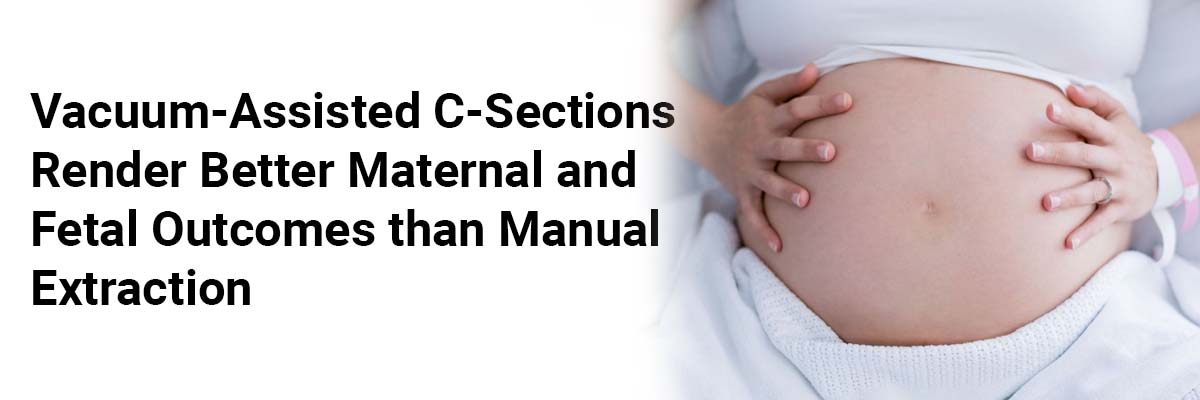
 IJCP Editorial Team
IJCP Editorial Team
Vacuum-assisted C-sections render better maternal and fetal outcomes than manual extraction
There has been a significant rise in the rates of cesarean sections
(C-sections) worldwide, whether it is medically necessary or elective,
surpassing the recommended 10-15% cesarean delivery rate – by the World Health
Organization (WHO). The focus should be on providing cesarean sections to women
in need. Therefore, it is crucial to explore strategies that can enhance maternal
and neonatal health conditions in C-sections.
A recent study compared the outcomes for both mother and newborn in two
groups – vacuum-assisted cesarean delivery (VACD) and manual cesarean delivery.
This prospective study conducted at Green Cross Hospital in Lucknow from
2012-2018 involved 500 pregnant women as participants. Overall, 250 C-sections
were undertaken in this cohort study – utilizing vacuum assistance with a soft
cup vacuum extractor on the fetal scalp and manual crown extraction, accompanied
by fundal compression support. Preplanned C-sections were performed for all
patients due to the absence of uterine activity and amniotic fluid.
It was found that VACD is superior to manual extraction cesarean birth.
Furthermore, VACD resulted in less uterine incision extension, estimated blood
loss, and maternal discomfort.
The results depicted no significant difference between Vacuum and Manual Extraction cesarean deliveries concerning Apgar Score, the need for infant resuscitation, or admission to the Neonatal Intensive Care Unit (NICU). The study demonstrated the superiority of VACD over manual extraction––in terms of reduced anticipated blood loss, uterine incision extension, and maternal pain.
Source:
Agarwal M, Solanki S, Sachau S. Indian J Obstet
Gynecol Res. 2023;10(4):415-420

IJCP Editorial Team
Comprising seasoned professionals and experts from the medical field, the IJCP editorial team is dedicated to delivering timely and accurate content and thriving to provide attention-grabbing information for the readers. What sets them apart are their diverse expertise, spanning academia, research, and clinical practice, and their dedication to upholding the highest standards of quality and integrity. With a wealth of experience and a commitment to excellence, the IJCP editorial team strives to provide valuable perspectives, the latest trends, and in-depth analyses across various medical domains, all in a way that keeps you interested and engaged.






















Please login to comment on this article